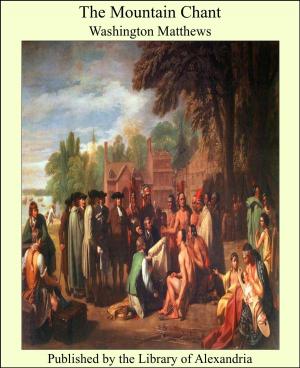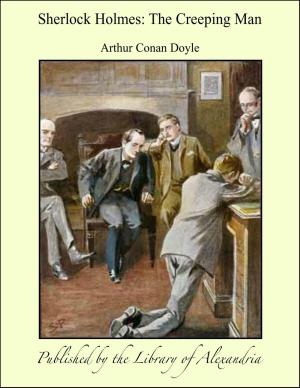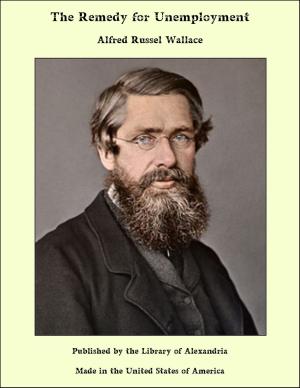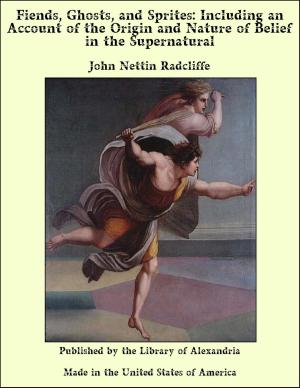History of American Literature
Nonfiction, Religion & Spirituality, New Age, History, Fiction & Literature| Author: | Reuben Post Halleck | ISBN: | 9781465623744 |
| Publisher: | Library of Alexandria | Publication: | March 8, 2015 |
| Imprint: | Language: | English |
| Author: | Reuben Post Halleck |
| ISBN: | 9781465623744 |
| Publisher: | Library of Alexandria |
| Publication: | March 8, 2015 |
| Imprint: | |
| Language: | English |
AMERICAN LITERATURE AN IMPORTANT STUDY.—We should not begin the study of American literature in an apologetic spirit. There should be no attempt to minimize the debt that America owes to English literature, nor to conceal the fact that American literature is young and has not had time to produce as many masterpieces as England gave to the world during a thousand years. However, it is now time also to record the fact that the literature of England gained something from America. Cultivated Englishmen to-day willingly admit that without a study of Cooper, Poe, and Hawthorne no one could give an adequate account of the landmarks of achievement in fiction, written in our common tongue. French critics have even gone so far as to canonize Poe. In a certain field he and Hawthorne occupy a unique place in the world's achievement. Again, men like Bret Harte and Mark Twain are not common in any literature. Foreigners have had American books translated into all the leading languages of the world. It is now more than one hundred years since Franklin, the great American philosopher of the practical, died, and yet several European nations reprint nearly every year some of his sayings, which continue to influence the masses. English critics, like John Addington Symonds, Robert Louis Stevenson, and Edward Dowden, have testified to the power of the democratic element in our literature and have given the dictum that it cannot be neglected. Some of the reasons why American literature developed along original lines and thus conveyed a message of its own to the world are to be found in the changed environment and the varying problems and ideals of American life. Even more important than the changed ways of earning a living and the difference in climate, animals, and scenery were the struggles leading to the Revolutionary War, the formation and guidance of the Republic, and the Civil War. All these combined to give individuality to American thought and literature. Taken as a whole, American literature has accomplished more than might reasonably have been expected. Its study is especially important for us, since the deeds associated with our birthplace must mean more to us than more remarkable achievements of men born under other skies. Our literature, even in its humble beginnings, contains a lesson that no American can afford to miss. Unless we know its ideals and moral aims and are swayed by them, we cannot keep our heritage.
AMERICAN LITERATURE AN IMPORTANT STUDY.—We should not begin the study of American literature in an apologetic spirit. There should be no attempt to minimize the debt that America owes to English literature, nor to conceal the fact that American literature is young and has not had time to produce as many masterpieces as England gave to the world during a thousand years. However, it is now time also to record the fact that the literature of England gained something from America. Cultivated Englishmen to-day willingly admit that without a study of Cooper, Poe, and Hawthorne no one could give an adequate account of the landmarks of achievement in fiction, written in our common tongue. French critics have even gone so far as to canonize Poe. In a certain field he and Hawthorne occupy a unique place in the world's achievement. Again, men like Bret Harte and Mark Twain are not common in any literature. Foreigners have had American books translated into all the leading languages of the world. It is now more than one hundred years since Franklin, the great American philosopher of the practical, died, and yet several European nations reprint nearly every year some of his sayings, which continue to influence the masses. English critics, like John Addington Symonds, Robert Louis Stevenson, and Edward Dowden, have testified to the power of the democratic element in our literature and have given the dictum that it cannot be neglected. Some of the reasons why American literature developed along original lines and thus conveyed a message of its own to the world are to be found in the changed environment and the varying problems and ideals of American life. Even more important than the changed ways of earning a living and the difference in climate, animals, and scenery were the struggles leading to the Revolutionary War, the formation and guidance of the Republic, and the Civil War. All these combined to give individuality to American thought and literature. Taken as a whole, American literature has accomplished more than might reasonably have been expected. Its study is especially important for us, since the deeds associated with our birthplace must mean more to us than more remarkable achievements of men born under other skies. Our literature, even in its humble beginnings, contains a lesson that no American can afford to miss. Unless we know its ideals and moral aims and are swayed by them, we cannot keep our heritage.















